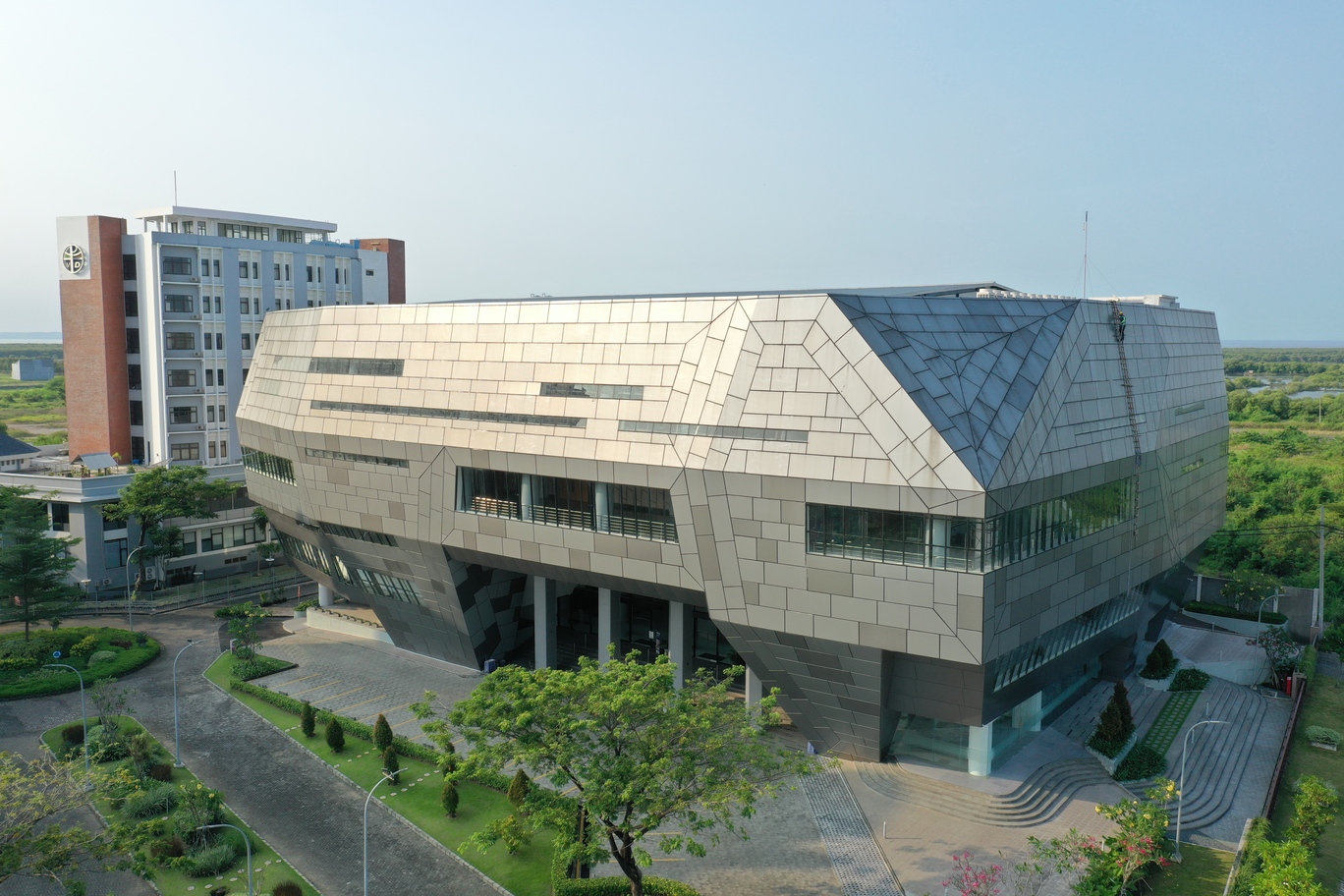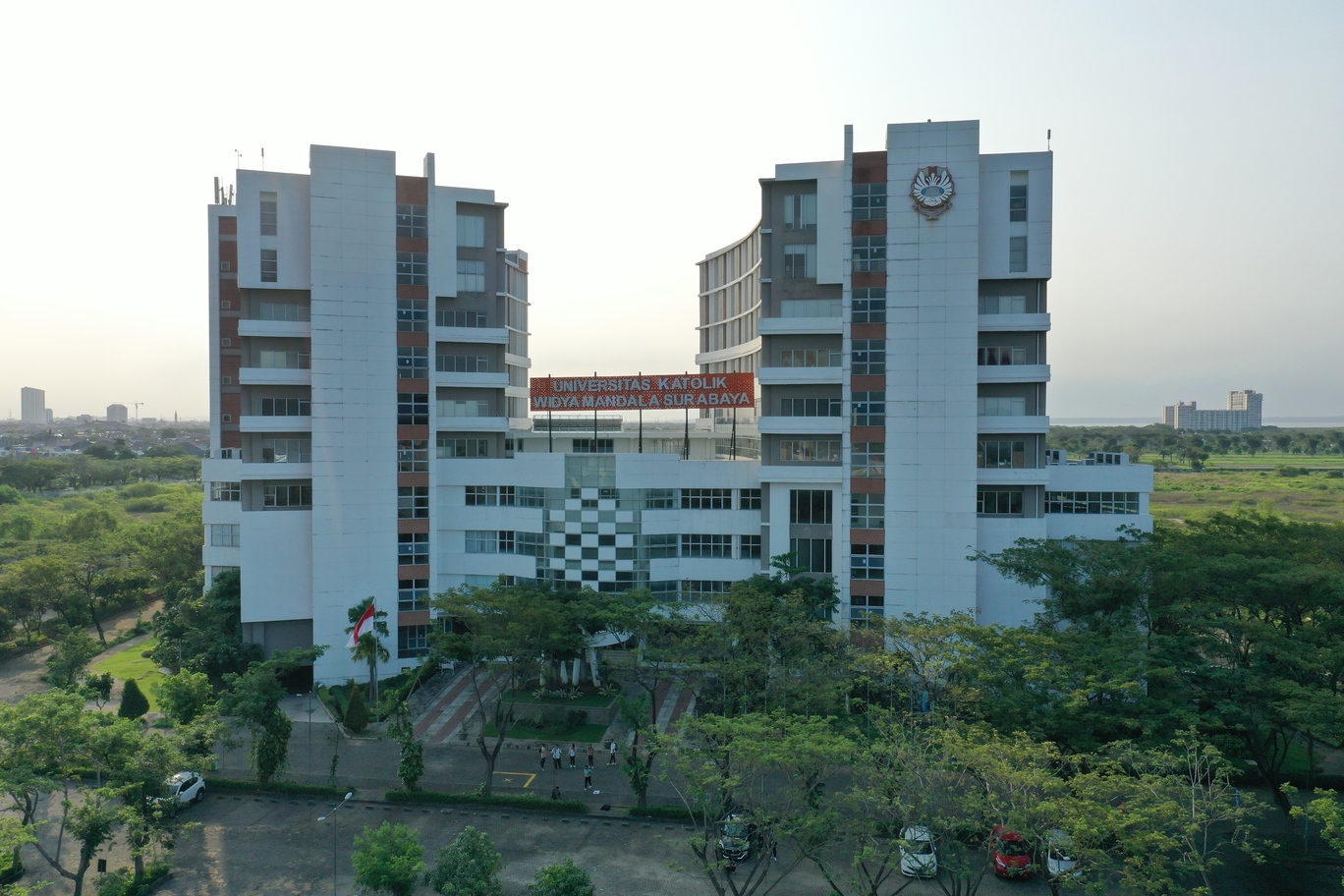The idea of establishing a Catholic Higher Education Foundation had started since World War I around 1914-1919. At that time, many graduates of HBS (Hogere Burger School/High School), could not continue their higher education in the Netherlands, due to circumstances and transportation barriers to Europe.
Because of that the Dutch East Indies government at that time intended to have its own university in the Dutch East Indies. In 1920 the Technische Hogeschool (Technical College) was established in Bandung, in 1924 Rechtskundige Hogeschool (Law College) and Geneeskundige Hogeschool (Medical College) in Jakarta and in 1940 Landbouw Hogeschool (Agriculture College) in Bogor.

The Dutch East Indies government at that time, wanted to unite these high schools in a container namely Universiteit van Indonesie and want to build Fakulteit der letteren en Wijbegeerte (Faculty of Letters and Philosophy). In order to unify this, the Dutch East Indies government proposed a professorship (leerstoel) for Philosophy course "sekulerwhich is planned must be taken by all students. It was this idea that worried the Apostolic Vicars in the Dutch East Indies, for fear of affecting the way of thinking and views of Catholic students. Accordingly, they proposed an extraordinary professorship for Aristotelian-Thomist Philosophy, and this proposal was accepted. As a follow-up, the bishops formed an institution called Stichting Sapientia, who was domiciled in Batavia on 15 July 1941. This institution was chaired by Mgr. P. Willekens, SJ, Apostolic Vicar of Batavia, which consists of both clergy and lay scholars. Stichting Sapientia aims to advance higher education in Indonesia with a Catholic foundation.
However, before Stichting Sapientia made preparations to establish a Catholic university and take part as expected, in 1942, Indonesia was occupied by Japanese troops.
Then the 1950s became known as the “Catholic College Revival Era”, because in 1955; Mgr. Arntz OSC (Bishop of Bandung) and Mgr. Prof. Dr. N.J.C. Geise, OFM (Bishop of Bogor), decided to establish Parahyangan College in Bandung. And in the same year, Fr. G. Kester, SJ as Provincial Jesuit Union, founded the Sanata Dharma Teacher Education College in Yogyakarta.
Success in the Bandung and Yogyakarta Dioceses encouraged Mgr. J. Klooster, CM, Bishop of Surabaya to also establish a university in his diocese. the idea was discussed with Fr. Prof. Dr. Paul Janssen, CM and Sr. dr. Dionysia Michels, OSU, from Madiun. With the support of the Madiun parish priest, Fr. A.J. Dibjikarjono, Pr., in 1958, the B-1 Educational Sciences managed by the Yohanes Gabriel Foundation and the Indonesian PGSLP managed by the Ursuline Sisters were merged to become the Faculty of Education which was the forerunner of Widya Mandala Catholic University.
While on assignment to Yogyakarta, Rm. Janssens saw a sign from a meeting hall next to the church in Kota Baru saying "Widya Mandala". According to Rom. Loef, SJ means "place of scholars". Widya Mandala comes from ancient Javanese, Mandala means a building or place in the sense that is not only physical and Widya means scholar. So Widya Mandala can be interpreted as a place of education for wise and successful people (graduates). The name Widya Mandala was finally used by Rm. Janssens for the name IKIP which he founded.
According to another version, the name "Widya Mandala" (Widya: Science, Mandala: Place/Container) was a proposal from Father I. Dwidjosusastro, CM which was later approved by Father A.J. Dibjokarjono, Pr. and fully supported by Mgr. J. Klooster, CM as the Bishop of Surabaya at that time.
The idea of establishing a Catholic higher education institution was very well received by the people in Surabaya, so that on July 7, 1958, Mgr. J. Klooster, CM established the Widya Mandala Foundation in Surabaya which was inaugurated by notarial deed of Anwar Mahajudin No. 42/1960 on August 11, 1960. Based on the notarial deed, the first administrators were:
| Chairman | : | Romo A.J. Dibjokarjono, Pr. |
| Secretary | : | Romo A. Hadisoedarso, Pr. |
| Treasurer | : | Bapak Inggar Mulyawardaja (Yap Tjong Ing) |
| Academic Advisor | : | Prof. dr. J.A. Wibowo (Oei Hway Kiem) |
At the beginning of the establishment of the Widya Mandala Foundation as stated in article 3 of the Articles of Association contained in the Notary Deed No. 42/1960 has principles and objectives: "….. To maintain and control schools, hospitals, hostels and others in Surabaya and in other places in Indonesia …..".
In accordance with existing developments, the Articles of Association of the Widya Mandala Foundation have also undergone several changes. The last amendment was in 1994 with the Notary Deed of Maria Martha Lomanto, SH Number 18 dated 8 June 1994. The amendment to the Articles of Association caused the goals of the Widya Mandala Surabaya Foundation to also change according to what is stated in Article 4 of the Notary Deed of Maria Martha Lomanto, SH Number 18 dated 8 June 1994, namely: moral and educated and highly knowledgeable.
To achieve this goal, the Widya Mandala Surabaya Foundation organizes:
students
MOST TRANSFORMATIVE COLLEGE
years of history
Based on professional management of higher education to achieve the welfare of employees and students in the physical and spiritual fields, Widya Mandala Catholic University Surabaya prioritizes the values of:
Care
An attitude that shows great concern for fellow citizens in the UKWMS environment and stakeholders, respects all regulations and policies set by the institution, and actively takes part in every activity carried out, both internally and externally.
Commit
Willingness to act in accordance with the mandate, institutional demands or obligations as UKWMS citizens. This is a minimal or normative attitude. It is hoped that UKWMS residents will have an affective, committed attitude, which as far as possible “beyond the call of duty”
Enthusiastic
Very passionate, very interested, and passionate attitude in every task and activity that is carried out or carried out; there is no sense of compulsion, even (it feels like) always want to do it. An attitude that generates positive passion, and improves the quality of relationships with other people, and is open to new ideas or opportunities.
The formation of an academic community that is reflective, creative, and has a positive impact on improving the lives of others, and based on Pancasila values and Catholic principles.
Carrying out education and teaching, research, and scientific development that is integrated with community service in an effort to produce graduates who are professional, master science, technology, arts, and culture, are morally open to change and development, and have high solidarity and respect for service and dedication for those in society who most need support.

UKWMS adalah universitas yang terakreditasi UNGGUL dari Badan Akreditasi Nasional Perguruan Tinggi. Melalui Webometrics tahun 2026, UKWMS berhasil berada di Peringkat 1 Kampus Swasta Surabaya, Peringkat 3 Kampus Swasta Jawa Timur, lalu peringkat 13 Swasta Nasional, dan Peringkat 61 Nasional Universitas Terbaik di Indonesia.
WhatsApp us